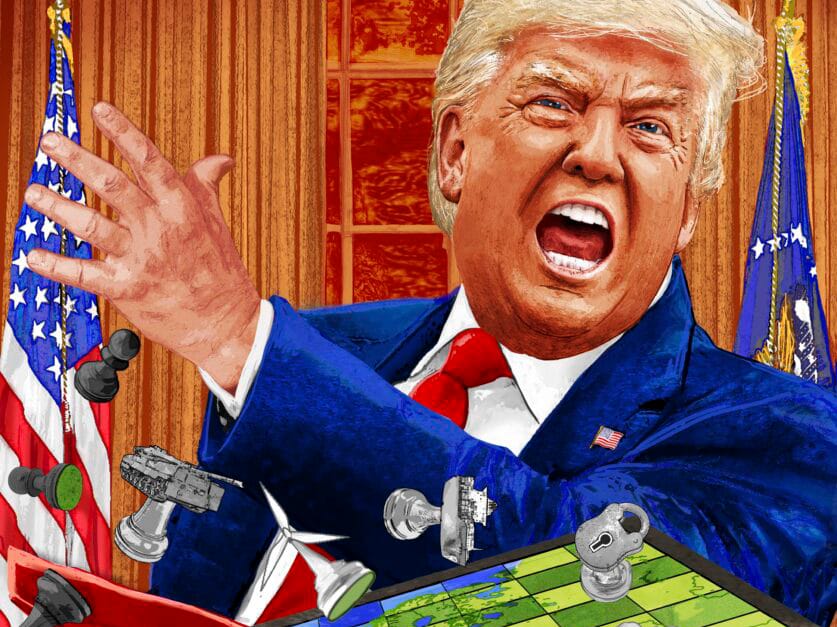The former president’s return would cement a shift in the U.S. as a fact that can no longer be ignored.
This is the moment most of Europe’s leaders hoped they would never see. The date is November 7, 2024, two days after Donald Trump edged out Joe Biden in the U.S. presidential election, and already the once-and-future president has announced he will force Ukraine to strike a peace deal with Russia and cede territories the Kremlin has claimed as its own.
Gathered in Budapest for a meeting of the European Political Community, the continent’s leaders stare out over the majestic Danube River with just one thing on their mind: How should they react?
Can they double down in the face of Trump’s opposition and finally give Kyiv whatever it takes, as a group of leaders clustered around Ukrainian President Volodymyr Zelenskyy and French President Emmanuel Macron are arguing? Should they follow Hungarian Prime Minister Viktor Orbán’s lead and welcome Trump’s initiative to bring the conflict to an end? Wouldn’t it be better to work with Washington and help shape the deal, as the German and Italian delegations keep saying? And most importantly, how can the continent’s leaders keep the sharp turn in U.S. foreign policy from driving their countries apart?
Trump’s return to the White House is no sure thing, but the possibility is forcing Europe’s leaders to ponder scenarios like this, and grapple with the questions they entail. And as the U.S. election cycle cranks into a higher gear, officials across the continent are becoming increasingly candid about the implications of a second Trump presidency.



American here:
I really hope it doesn’t pan out that way, but to be honest, it’s hard not to see Europe as asleep at the switch here. Sure, everyone was surprised Trump won in 2016, but it became really obvious what the trajectory was the second he took office, and it seems that most European countries simply refused to account for that in a lot of different ways.
Now, I’m seeing European countries hoping really hard that Trump doesn’t win… but not much progress on collective geopolitical annd strategic efforts that aren’t already closely tied to the US. The EU’s collective military power compared to the US is a bit of a joke, as is the current state of their military supply and logistical lines (which directly underwrite and sustain military power). And the ESA’s current launch capability is comparatively minuscule compared to what NASA has done for decades.
Don’t get me wrong: I know Europe spends way more on their citizens, and that is awesome. But though it’s less direct, making sure the big stick actually exists when countries like Russia or China (or, conceivably in a Trumpian-US future… the US) stop paying attention to normal diplomacy, and start exercising diplomacy through other means.
More pointedly: yes, this is to a large degree the unfortunate return of the “might makes right” school of thought that many people - and pointedly, most European politicians - thought was mostly relegated to history.
The often repeated trope that the only country contributing to NATO is the US must stop. In fact, based upon percentage of GDP per capita, the US isn’t even #1! That award belongs to Poland. The US needs to strengthen its relationship with the EU for global stability, not weaken it. The EU’s contribution to NATO has increased dramatically and there are now 10 countries (mostly in Europe) who are at the stated and agreed upon goal of >2% of GDP spent on NATO. Trump will destroy our relationship with the EU and empower his multi-country pig sty of dictators. Only an idiot (or a dictator) would want that.
Sauce: https://worldpopulationreview.com/country-rankings/nato-spending-by-country